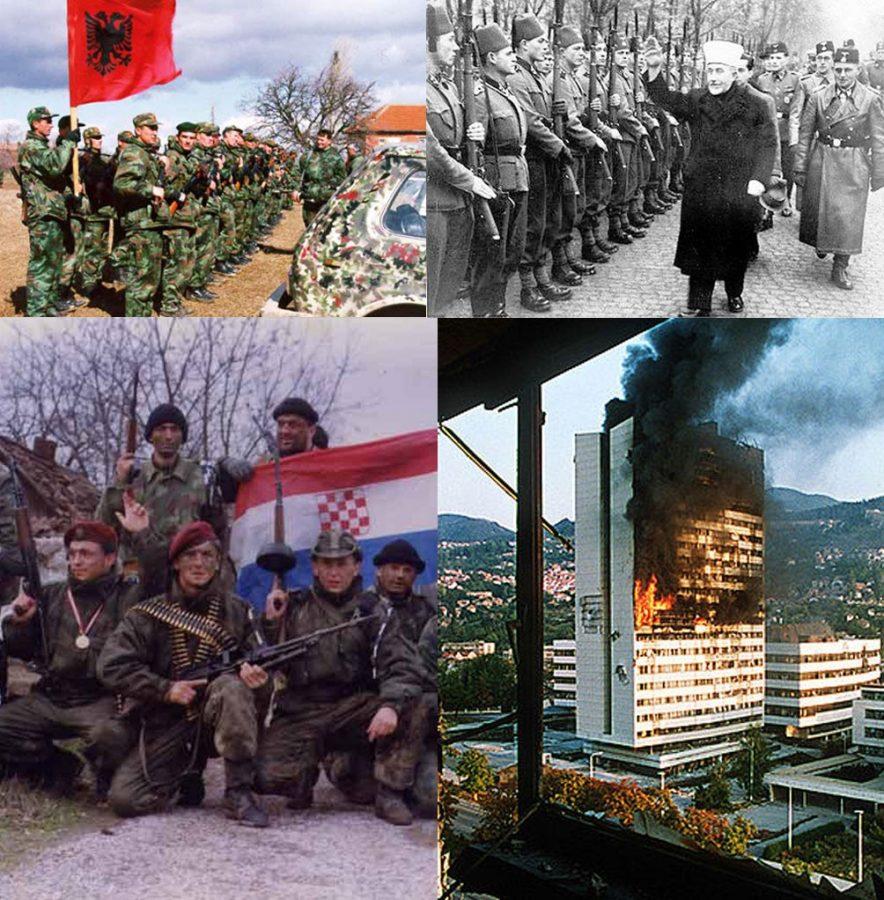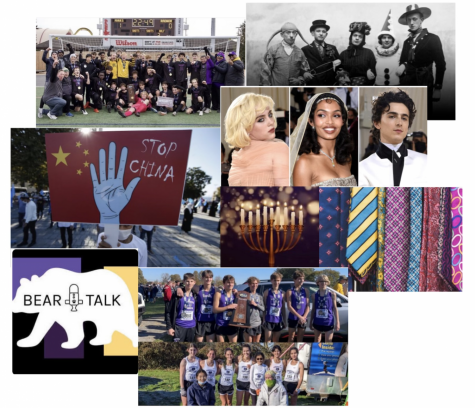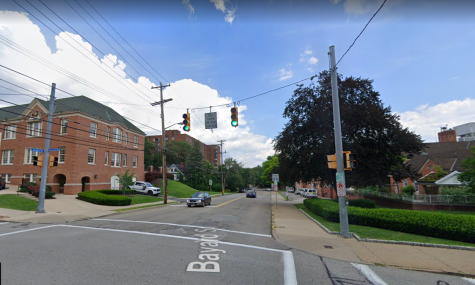Donald Trump Could Start the Fourth Balkan War
In 1888, former German Chancellor Otto von Bismarck gave a prescient warning: that at some indefinite point in the future, a European war would be triggered by “some damned foolish thing in the Balkans.” Twenty years later, he would be proved right as the claustrophobic mess of nations smooshed between two rival superpowers would provide the perfect storm, where the assassination of a relatively unimportant Austrian royal in the Bosnian capital of Sarajevo would trigger the most horrific war the modern world had ever seen. Fast forward 100 years and the world finds itself in a somewhat similar situation. Given current trends in the region, it does not seem too far of a stretch to surmise that the world’s first full scale Balkan War could be started by what Bismarck would probably call, “some damned foolish election in America.”
Since the rise of nationalism, the Balkan Peninsula has always been a thorn in the side of world peace. Years before triggering WWI, the nations of the Balkans were already embroiled in another set of wars: the First and Second Balkan Wars. These wars to drive the emaciated remains of the Ottoman Empire out of Europe nearly upset the already precarious balance of power in Europe and caused a flurry of diplomatic efforts in the government halls and offices of the superpowers of the day. In the 1990s, following the end of the Cold War, formerly communist Yugoslavia imploded in a rush of bloodshed, bringing genocide to Europe for the first time since the Holocaust and causing one of the most horrific wars in world history. The horror of this particular episode in Balkan history cannot be understated, with events such as Serb nationalist paramilitaries forcing Croat civilians to walk over landmines, mass “rape camps” being formed for Muslim women in Bosnia, and babies being doused in oil and burned alive being just the surface of the crimes committed.
Halfway through the 20th century, the Balkans were also embroiled in yet another war, with the Nazi puppet state, the so called Independent State of Croatia, massacring, defiling, and beheading its way through Serbia.
Looking at these events as a whole, a gory pattern emerges: every so often, in a seemingly predictable cycle, and in response to larger events, the Balkans explode in a nationalistic blood letting of catastrophic proportions before settling down for a dormant period, awaiting the next explosion.
To those watching the region, it seems the election of Donald Trump may have provided the perfect impetus for the newest rotation in the cycle. In particular, there is a fear that Trump’s apparent détente with Vladimir Putin will embolden Russia in the region and drive certain states into its orbit. Already, over the past few months, there have been signs of this beginning. After Montenegro’s recent elections (where the country retained its pro-Europe Prime Minister Milo Đukanović), it emerged that there had been an attempted Russian-backed coup to forcibly remove the government and replace it with one more palatable to the Kremlin. Additionally, elections in Republika Srpska (the autonomous Serb entity within Bosnia and Herzegovina) and Bulgaria this year have yielding pro-Russian results, Russia and Belarus have carried out military drills in Serbia (ominously titled “Slavic Brotherhood”), and, perhaps most worrying of all, Milorad Dodik, President of Republika Srpska, has hinted at a possible independence referendum (backed by Russia) which threatens to once again tear apart Bosnia.
While these events are not specifically linked to the American presidential election, it is clear that two blocks are beginning to form in the Balkans, a pro-Russian one of Serbia, Republika Srpska, Bulgaria, and possibly others, and a pro-West one of Albania, Croatia, Montenegro, the Muslim-Croat Federation of Bosnia, Slovenia, Greece, and Kosovo. This is extremely dangerous if Trump goes through with his proposed reset with Russia. This reset will likely embolden Putin’s policy towards Russia’s Eastern European neighbours. The worry is if Putin picks a fight with the European Union in say, the Baltic states (perhaps with an incursion into Latvia), and the US does little to stop it, the conflict could ripple over to the Balkan Peninsula, with the Russia-EU struggle playing the role filled in the past by the decline of the Turkish Empire, the collapse of communism, or the rivalry between the Austro-Hungarian and Russian Empires.
In these historical examples too, once the conflict hit the Balkans, it lost most of its broader context as the forces of racism and ultranationalism warped the original purpose of the conflict beyond recognition (consider for instance Yugoslavia in WWII, essentially an ethnic civil war between Croats and Serbs, and only passingly resembling the broader political and ideological war it was set in), which is the scariest part of all this. If war breaks out once again in the Balkan Peninsula, it won’t simply be another theatre of the Russia vs. The West conflict. No, it’ll look nothing like that; it’ll look simply like yet another genocidal bloodbath over Serbs vs. Muslims, Serbs vs. Croats, Greeks vs. Macedonians, Albanians vs. Greeks, and on and on.
Consequently, Trump must not go through with his policies. There has been a lot of talk about the dangers of an emboldened Russia to the NATO alliance or the European Union, but there is another threat steaming on Europe’s borders and, if history is anything to go off of, a full scale Balkan war would make Aleppo look like a pacifist conference.







